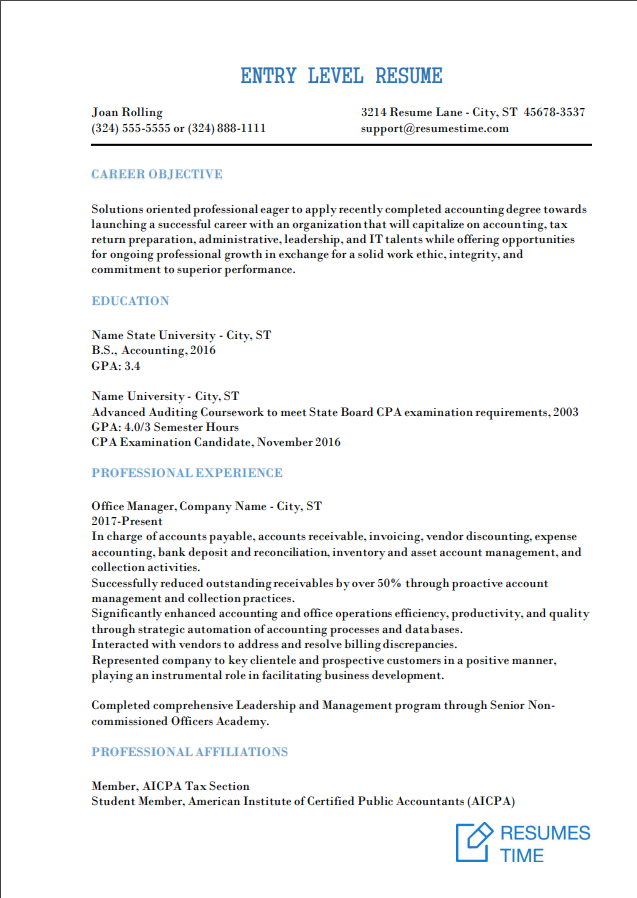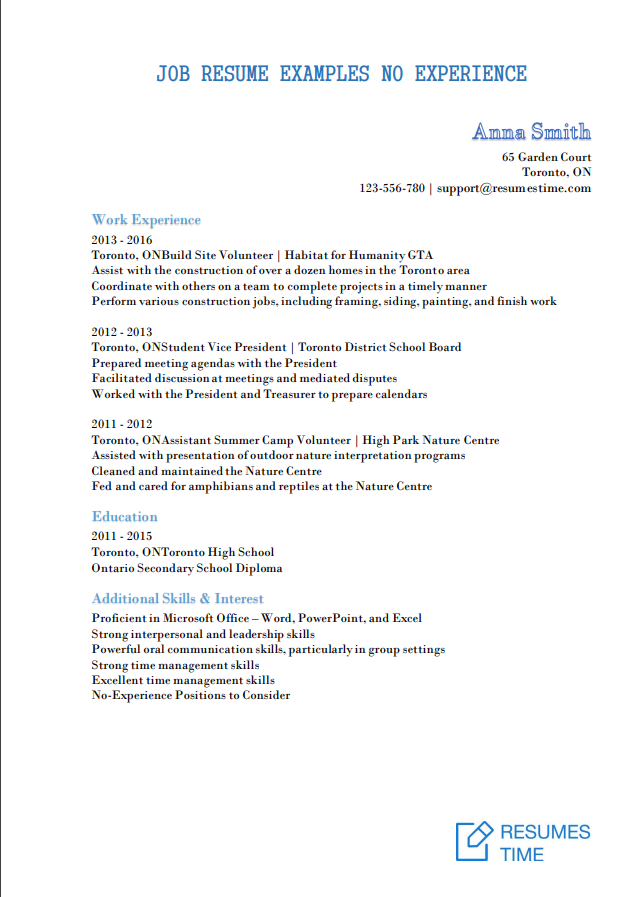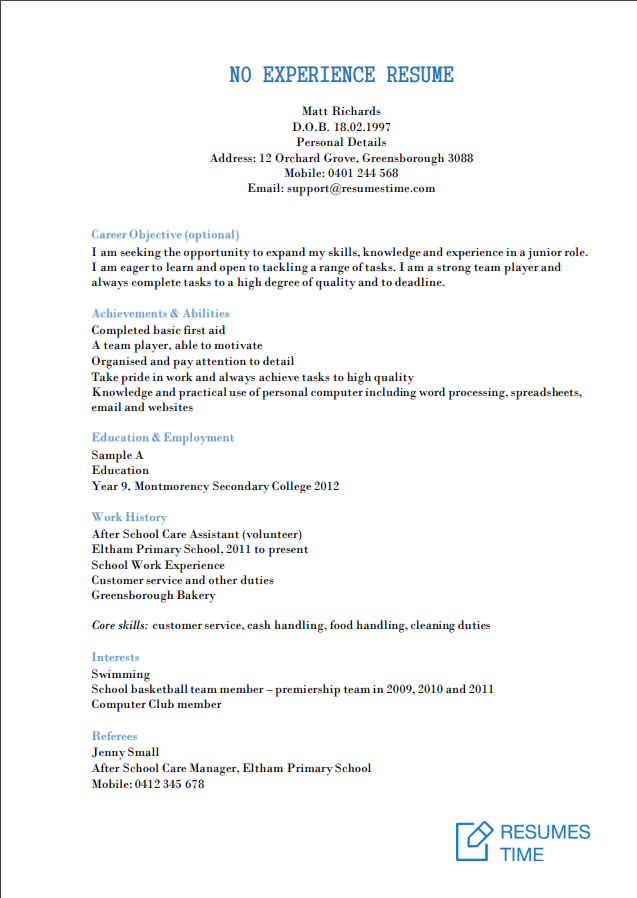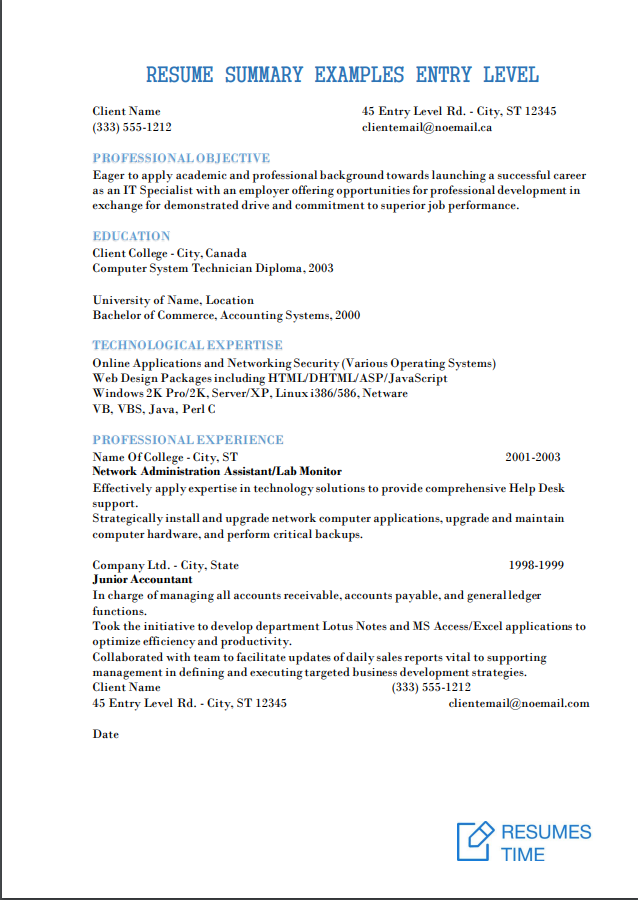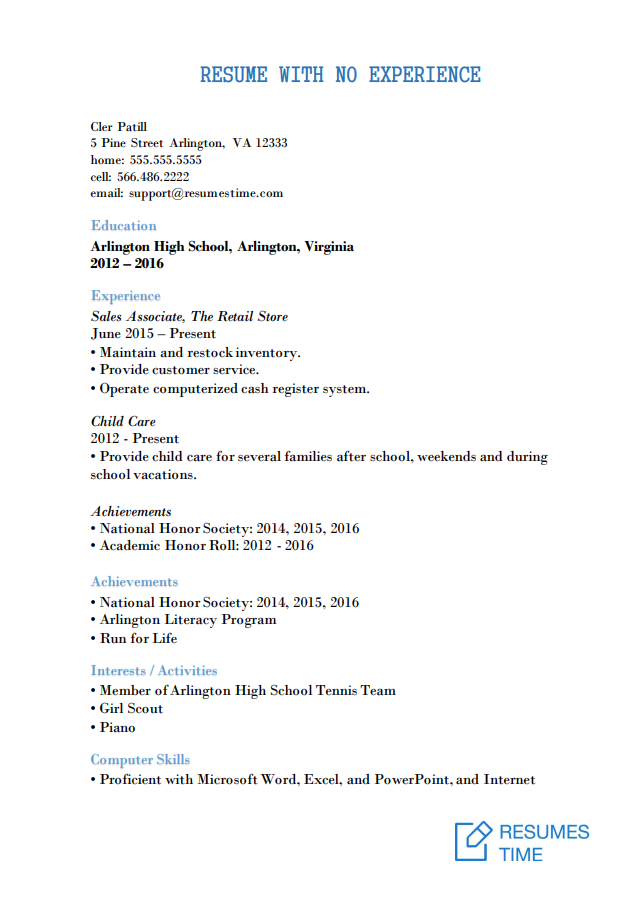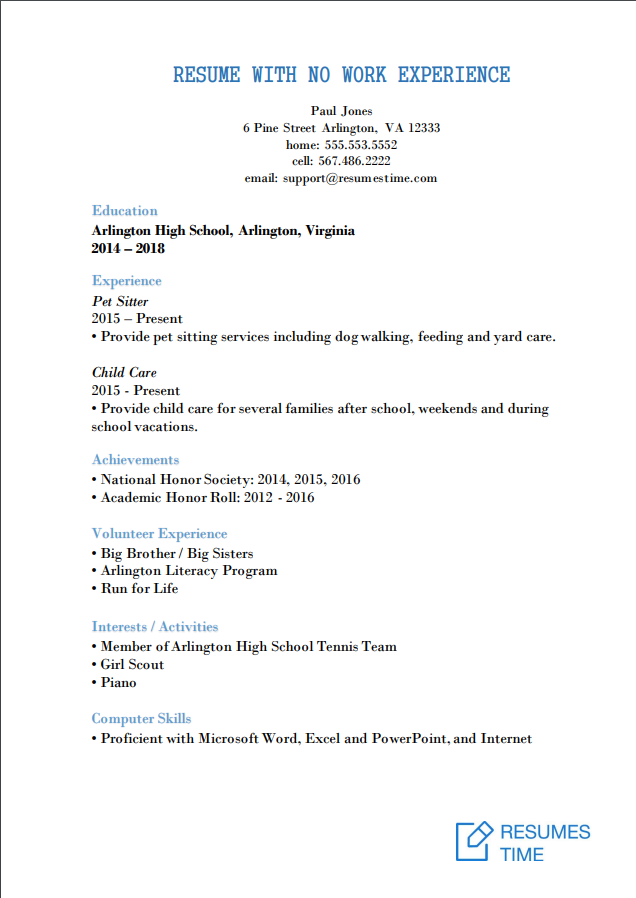Entry Level Resume Samples & Template that Work
Any graduate, who is only starting a career, or a specialist, who is willing to change fields of expertise, will need to launch career at an entry level. Of course, such employees won’t be able to boast years of experience in the field but they need to prove strong skills, training and aspirations.
That is why you need to provide a really strong resume to concentrate on the qualities you have and prove that you are the best candidate for a particular position.
Don’t worry if you still feel lost and not knowing where to start: we are here to provide you with all the necessary guidelines and recommendations on how to create a strong entry level resume and attract attention of the hiring manager.
However, if you have doubts or simply don’t possess enough time, you can always get familiar with resume samples on our website. In such a way, you will have models to follow and get an idea what employers are looking for. Such examples will also give information on how to format your resume and what things to include to make it powerful.
Continue reading to learn more about the structure of a resume, its key features and mistakes to avoid.
Related Free Resume Samples
Entry Level Resume: Where to Start:
First thing you need to remember is that there are no common patterns of writing a resume entry level, as it greatly depends on the job offer, requirements of the employer and of course the field of your interests.
For example, your resume in education will definitely differ from the one in finances. However, there is a list of similar details, which almost every resume possesses and you need to include all of them to keep up with the latest requirements in the field.
Familiarize with resume samples and you will notice that not depending on the industry, they all contain such sections, as:
- Summary of the resume;
- Education section;
- Experience section;
- Skills section.
There are also two different approaches to present your information, which differ depending on your goals and expectations.
The first one is called the chronological one and organizes your experience by time. It is the most popular format and managers are used to it. The second is a functional format and can be called an alternative tool. It highlights your competences, fields of expertise and future achievements instead of concentrating on your work experience.
A chronological format is used, when you have a strong history and years of experience in a particular field. However, if you can’t boast work experience, it is better to choose a functional format and show what skills you possess.
Education Section
Education section is probably the most important part of an entry level resume, as it gives you a chance to show your skills, not concentrating on the lack of work experience. That is why you should take your time and work on this section carefully, creating a separate list for every degree and achievement to make it visible.
Complete this section in a reverse chronological order, starting with the latest degrees, diplomas or certificates. Don’t forget to write the name of your institution, honor title and date of graduation. You can even indicate some of your marks if they are good and somehow relate to the industry. Always list all of your awards and achievements.
A nice idea will be to create a separate list of courses, which you find the most relevant. It will give the hiring manager information whether you have any knowledge of the field or a particular subject without a need to waste time and ask you for additional information.
Experience Section
As you have probably seen in the samples, you can choose one of several formats, which suite your needs: a chronological, a functional or a combined one. All of them can be a great way to highlight your strong sides and avoid mentioning fields you are not good at.
If you are only starting your career and can’t boast experience in the field, as well as volunteer work or internship, it is better to use a functional format and concentrate on your personal treats and characteristics. If you choose this format, your experience section should be divided into two sub sections and the first one should reflect your fields of expertise, abilities and skills, which may be related to the job. You can also write about your interests, as they can influence your future in a particular case.
In the second subsection, you should also list specific skills, like technical or educational ones, which will help the hiring manager to understand whether you will be useful for the company.
Once you are done with the main section, you can describe all types of experience you had in the past. It may include volunteer projects, leadership positions in various societies and associations, seasonal and part-time jobs or any other projects, which may be considered a job. You don’t need to list your duties and should only provide its title and the name of the company.
However, if you already have experience in the similar field, you should pay attention to the chronological format. If you choose it, you need to start with the experience section, placing the one with interests and abilities lower on the page.
Here you should provide details of your experience in a chronological order. Organize every position in a clear way, indicating title of your job, name of the company and its location, dates and write a couple sentences about your core responsibilities and achievements in the company.
Skills Section
After completing the section of your work experience, you need to complete the one, which will describe your specific skills or skills, which you haven’t mentioned before. This section may include the skills, which were mentioned in the job vacancy and those, which could be indirectly relevant for the particular position.
Here you need to include knowledge of foreign languages, technical, computer skills, public speaking experience, leadership, communication skills, sports achievements and artistic skills, which may give the hiring manager information on the type of person you are. In addition, this section is a great way to show what attitude you have towards life and what you do outside the classroom or office.
If you don’t know what skills can be relevant, you can read resume samples for entry level and note down those, which may be interesting for the hiring manager and reflect your own interests.
Mistakes to Avoid
Now, when you know how to complete every section of an entry level resume, you need to familiarize with the most common mistakes to make your CV flawless:
- Cleric mistakes. Remember, as an individual, who is only starting career, you don’t have a right to make even the slightest mistakes and a simple typo may greatly lower your chances of being invited of an interview. If you don’t provide an impressive list of work experience or job-related skills, the hiring manager will get information from what they have: your resume. Typos and misspellings may give an impression that you are not able to pay attention to details or simply don’t want that job;
- False statements. Even if you are desperately looking for a job, you shouldn’t exaggerate or lie in your resume. Hiring managers have been in the industry for years and it is very simple for them to spot lies;
- Length of your resume. Always stick to the structure, even if you want to make a 1000-word essay on how good you are. A perfect entry level resume should be not more than one page long. Be brief and stick to the point, avoiding watery sentences.
How to Write an Entry Level Resume Statement?
It is not surprising that the most important section of your resume comes right after the heading and your contact information. It is called a resume statement and aims to show the hiring manager or a potential employer that you are a suitable candidate for the job.
It should consist of three-four lines of the text, where you write about your achievements, qualifications and aspirations. In such a way, the hiring manager will decide whether to continue reading or simply close your resume.
You need to be very attentive, when composing and editing this section, as you need to remember what can be interesting for the target reader and what makes you stand out from the rest.
The best way to write a good statement is to familiarize with resume samples to understand what tone and lexis should be used.
For example:
'Recent financial graduate is looking for a junior position in a middle-sized bank. Strong knowledge of finances, organizational and management skills and attention to details. Recently completed an internship at Financial Guru Co. Regularly participate in volunteer projects of the university and am a part of the Save-US non-profit organization in Chicago'.
